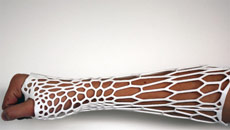Vital exhaustion, the combination of fatigue, increased irritability, and feeling demoralised, may raise a healthy man or woman's risk of first-time cardiovascular disease by 36 percent, says a study.
"Our study shows vital exhaustion is an important risk factor for the development of cardiovascular disease in otherwise healthy people," said lead author Randy Cohen from Mount Sinai St. Luke's and Mount Sinai Roosevelt hospitals.
"Loss of vitality thus adds to a growing number of psychosocial risk factors that have now been linked to the development of cardiovascular disease, including anxiety, depression, and social isolation," Cohen aded.
The researchers investigated the relationship between vital exhaustion and first-time heart disease in 11 prospective studies that involved 60,610 people without heart disease.
The studies had an average follow-up of 6.5 years.
"The identification of vital exhaustion as a coronary artery disease (CAD) risk factor appears timely," study co-author Alan Rozanski from at Mount Sinai St. Luke's and Mount Sinai Roosevelt pointed out.
"As society becomes increasingly fast paced, there is an increasing tendency for people to overwork while cutting back on sleep, exercise, and the rest and relaxation we all need to renew ourselves and prevent the factors that cause vital exhaustion," Rozanski explained.
The findings were presented at the American Heart Association's Scientific Sessions 2014 in Chicago, Illinois.





